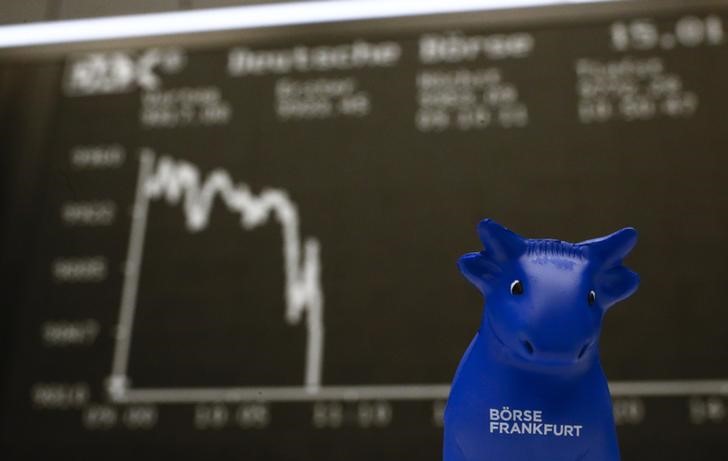This post was originally published on this site

Investing.com – European stock markets traded sharply lower Monday, with investors taking a cautious stance, given energy concerns in the region and ahead of a U.S. inflation report that could point to another substantial interest rate hike.
By 03:40 AM ET (0740 GMT), the DAX in Germany traded 1.3% lower, the CAC 40 in France fell 1.5%, and the UK’s FTSE 100 dropped 0.9%.
Last week’s positive tone has largely been erased Monday as investors warily await the release of the latest set of CPI reports from a number of countries, primarily the U.S.
French, German, and Spanish CPIs are all expected to stay at or near record levels, while the U.S. consumer price index is expected to show an 8.8% year-over-year increase and a 1.1% month-over-month increase. These numbers would be accelerations from last month’s numbers, with the cost of energy seen as the main driver.
In combination with Friday’s strong nonfarm payrolls release, this will continue to hold the Federal Reserve’s feet to the fire, pointing to another interest rate hike of 75 basis points which is likely to have an impact on global growth.
Also weighing Monday is the news that the biggest single pipeline carrying Russian gas to Germany has started annual maintenance, with flows expected to stop for ten days.
Concerns are mounting that Russia might choose to extend this shutdown, given the Western sanctions imposed after its invasion of Ukraine, heightening a gas crisis that has resulted in sharply higher bills for consumers.
In corporate news, Danske Bank (CSE:DANSKE) stock fell 5.7% after the Danish lender reduced its full-year net profit outlook on Sunday, hurt by rapidly rising interest rates and unfavorable financial market conditions.
EDF (EPA:EDF) stock rose 1.4% after the French government, which already has an 84% stake, announced over the weekend that it would fully nationalize the debt-laden power utility.
Oil prices edged lower Monday as fresh COVID concerns in Shanghai raised fears of new lockdowns and a hit to demand from the largest importer of crude in the world.
The highly transmissible BA.5 Omicron variant was discovered in China’s commercial hub over the weekend, prompting another round of mass screening from Tuesday to Thursday.
While the authorities will be keen for any curbs to be as targeted as possible to reduce damage to the world’s second largest economy, this news does bring back memories of the prolonged lockdowns earlier in the year, which clogged global supply chains and hit international trade.
By 3:40 AM ET, U.S. crude futures traded 2.2% lower at $102.50 a barrel, while the Brent contract fell 1.9% to $104.94.
Both contracts posted weekly declines last week as the market was worried that aggressive interest rate hikes would spark a recession and dent oil demand.
Additionally, gold futures fell 0.4% to $1,735.10/oz, while EUR/USD traded 0.6% lower at 1.0121.

